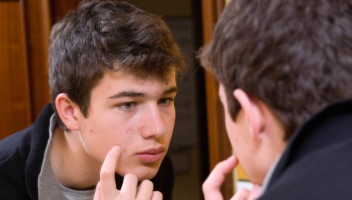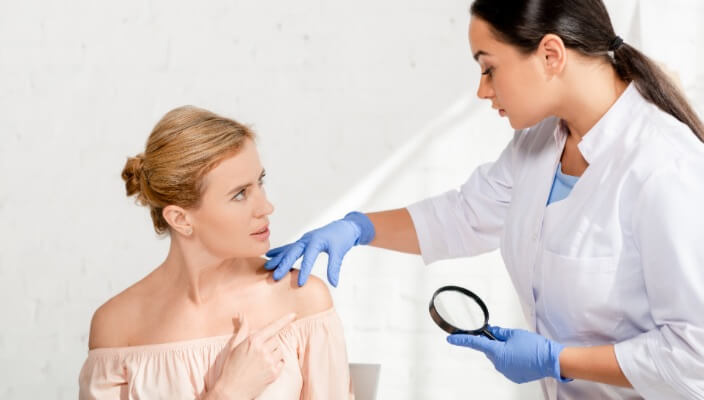Alopecia and Hair Loss
Understanding Alopecia and Hair Loss
What is Alopecia Areata?
Alopecia areata is an autoimmune skin disease that results in hair loss on the body due to the immune system attacking hair follicles. This condition affects more than 6.5 million people, including both children and adults, leading to varying degrees of hair loss.
Seeking Professional Help
If you are experiencing hair loss or other symptoms related to alopecia, scheduling an appointment with a dermatologist at the Center for Surgical Dermatology & Dermatology Associates is a proactive and necessary step. Our dermatologists are trained to diagnose and treat a wide range of skin and hair conditions, providing personalized treatment plans based on your specific needs.
Personalized Care and Treatment
At the Center for Surgical Dermatology & Dermatology Associates, our experienced dermatologists offer comprehensive care for alopecia and hair loss. We utilize advanced diagnostic techniques to understand the underlying causes of your hair loss and develop individualized treatment plans to promote hair regrowth and manage symptoms effectively.
Examples of Alopecia and Hair Loss




What are the Symptoms of Alopecia?
- Alopecia areata: skin loses hair in round sections of varying size.
- Alopecia areata totalis: complete loss of hair on the scalp alone.
- Alopecia areata universalis: loss of hair everywhere on the body.
- Sudden appearance of a small number of round hairless patches on the scalp, followed by total scalp hair loss.
- Some experience gradual thinning as well as itching associated with their hair loss. It will typically take 6 months for total hair loss of the scalp.
What are the Causes of Alopecia?
- Genetics and hormonal changes can cause alopecia.
- Autoimmune conditions like alopecia areata prompt the immune system to attack hair follicles.
- Medical treatments, hormonal fluctuations, infections, stress, and nutritional deficiencies can contribute to hair loss.
- Alopecia may result from tight hairstyles.
- Certain diseases and aging can lead to gradual hair thinning.
How to Prevent Alopecia
Alopecia and Hair Loss FAQs
The reversibility of hair loss depends on the cause. Some types of hair loss are reversible with appropriate treatment, while others may be permanent.
It's normal to lose some hair daily as part of the natural hair growth cycle. On average, individuals may shed 50 to 100 hairs per day. However, significant hair loss that leads to visible thinning or bald patches may indicate an underlying issue. If you notice an increase in hair shedding or changes in your hair density, it's advisable to consult with your dermatologist for evaluation.
Certain hairstyles that pull tightly on the hair, such as tight ponytails, braids, or extensions, can cause a type of hair loss known as traction alopecia. Additionally, the use of harsh hair products, frequent use of heat styling tools, or chemical treatments can contribute to damage and breakage. Choosing gentle styling practices and using products suitable for your hair type can help prevent unnecessary stress on the hair shaft.
Androgenetic alopecia, commonly known as male-pattern baldness or female-pattern baldness, can affect both men and women. However, the pattern and progression of hair loss may differ between the sexes. Men often experience a receding hairline and balding at the crown, while women may notice general thinning over the top of the scalp. Other types of hair loss, such as telogen effluvium or alopecia areata, can also affect both genders.
From our QualDerm Family of Brands: Get to the Root of Your Hair or Nail Issue
Alopecia Treatments
Medical treatments for alopecia aim to address underlying causes and stimulate hair regrowth. Common approaches include but are not limited to:
- Topical and oral medications.
- Light therapy.
- And in some cases, surgical procedures.
Individuals experiencing hair loss should consult with a dermatologist to determine the most suitable treatment based on the type and cause of alopecia. Schedule with one of our experts today.
Related Blog Posts

- General Dermatology
- Skin Care
- Chronic Skin Conditions
Hormonal acne can be a pesky skin problem for many. The only way to address this is by finding a hormonal acne treatment that works for you and your unique skin.
Read More
- Skin Care
- Botox
- Injectables or Fillers
- Cosmetic Treatments
Discover effective alternatives to BOTOX® for treating wrinkles and fine lines. Explore innovative non-invasive options that can help you achieve youthful, radiant skin without injections, empowering you to make informed choices about your skincare routine.
Read More
- Skin Cancer
- Skin Exams
Total Body Skin Exams (TBSEs) are crucial for healthy skin. Learn more about the importance of TBSEs and skin cancer detection.
Read MoreFeatured Products for Hair Loss

NutraFol Women's Hair Growth Pack - 3 month
Physician-formulated to target root causes of thinning hair in women 18-44, including stress, lifestyle, and nutrition. Our clinically effective, natural ingredients support whole-body health for visibly thicker, stronger hair growth and less shedding.

SEEN Magic Serum Fragrance Free
This award-winning fragrance-free hair serum reduces frizz, adds shine, nourishes and provides hair with protection against heat up to 450º F. Developed specifically to be safe for sensitive, acne-prone, and eczema-prone skin. 1.0 oz Ingredients: Ethylhexyl olivate, C13-15 Alkane (plant derived), Squalane
